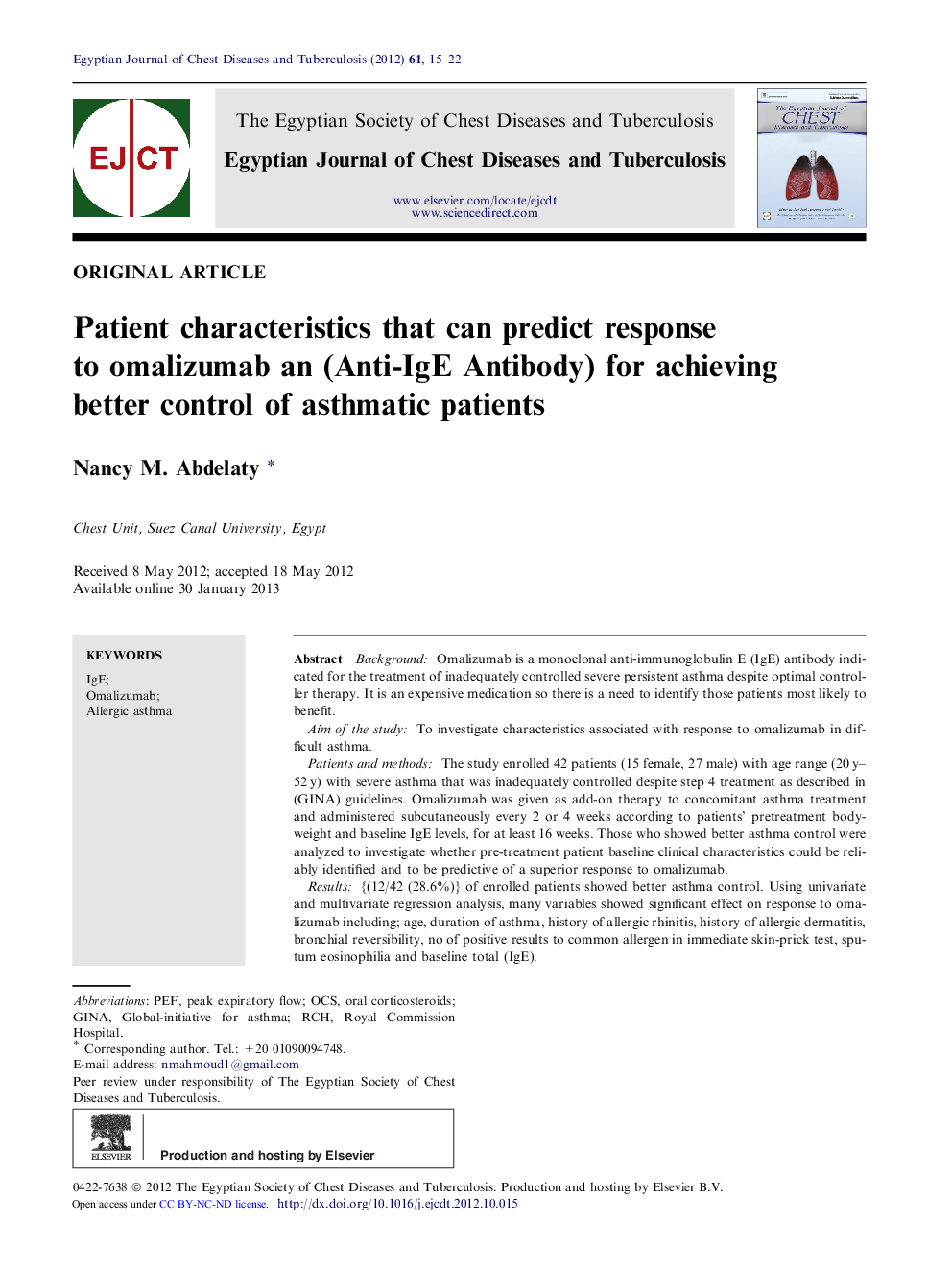| Article ID | Journal | Published Year | Pages | File Type |
|---|---|---|---|---|
| 3400375 | Egyptian Journal of Chest Diseases and Tuberculosis | 2012 | 8 Pages |
BackgroundOmalizumab is a monoclonal anti-immunoglobulin E (IgE) antibody indicated for the treatment of inadequately controlled severe persistent asthma despite optimal controller therapy. It is an expensive medication so there is a need to identify those patients most likely to benefit.Aim of the studyTo investigate characteristics associated with response to omalizumab in difficult asthma.Patients and methodsThe study enrolled 42 patients (15 female, 27 male) with age range (20 y–52 y) with severe asthma that was inadequately controlled despite step 4 treatment as described in (GINA) guidelines. Omalizumab was given as add-on therapy to concomitant asthma treatment and administered subcutaneously every 2 or 4 weeks according to patients’ pretreatment bodyweight and baseline IgE levels, for at least 16 weeks. Those who showed better asthma control were analyzed to investigate whether pre-treatment patient baseline clinical characteristics could be reliably identified and to be predictive of a superior response to omalizumab.Results{(12/42 (28.6%)} of enrolled patients showed better asthma control. Using univariate and multivariate regression analysis, many variables showed significant effect on response to omalizumab including; age, duration of asthma, history of allergic rhinitis, history of allergic dermatitis, bronchial reversibility, no of positive results to common allergen in immediate skin-prick test, sputum eosinophilia and baseline total (IgE).ConclusionOmalizumab is an expensive medication so it is recommended to target its use to patients most likely to benefit rather than recommend widespread use. Further studies are needed to confirm these data
